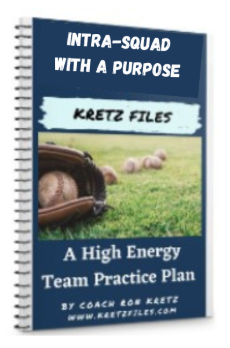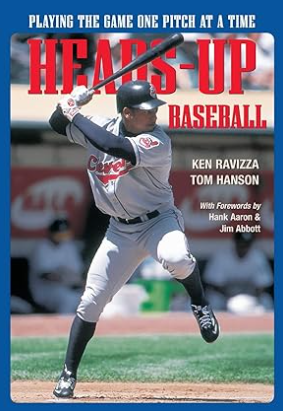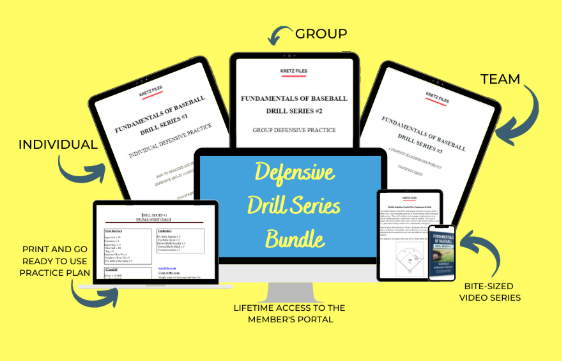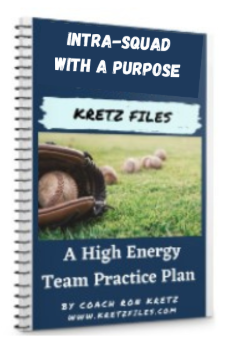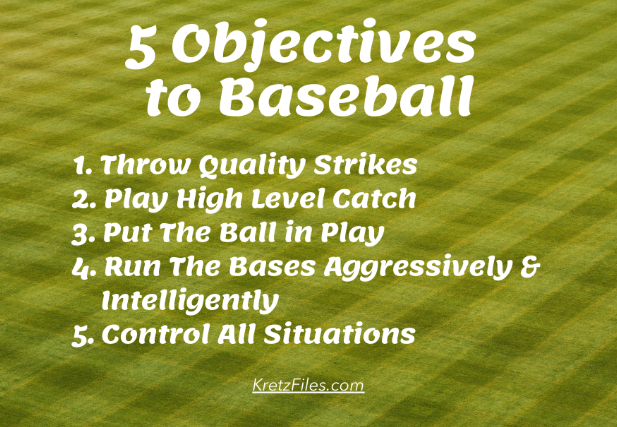Why Baseball Is 90% Mental (And How Players Can Train Their Minds)
Baseball legend Yogi Berra once joked: “Baseball is 90% mental, and the other half is physical.” While the math doesn’t add up, the message is clear: the mental side of baseball often matters more than raw physical ability.
Every coach and player knows mechanics are important. But when the game is on the line, it’s focus, confidence, and decision-making that separate great players from good ones. Let’s break down why baseball is so mental and how players can actually train their minds to gain a competitive edge.
Question:
Why do coaches say baseball is 90% mental?
Answer:
Baseball is called 90% mental because success often depends more on focus, confidence, and preparation than physical skill alone. Players with strong mental discipline:
Stay composed under pressure
Anticipate plays before they happen
Recover quickly from mistakes
Build consistent game-day confidence
In short, mastering the mental side of the game gives athletes the edge that separates good players from great ones.
1. Failure Is Built Into the Game
No sport teaches failure like baseball. A hitter who succeeds 3 out of 10 times is considered elite. Pitchers give up hits, defenders commit errors, and slumps happen.
The difference isn’t whether failure comes; it’s how players handle it.
Strong mental players flush mistakes quickly and stay locked in.
Weak mental players carry frustration into the next pitch, inning, or game.
👉 Training takeaway: Teach your players that failure is feedback. The best bounce back quickly and move forward.
📋 "Flush It" was a creative technique legendary coach Skip Bertman used while leading LSU.
I actually bought one online from a novelty store and placed it in the dugout. It was useful because it had sound effects too - LOL

2. Every Play Demands Split-Second Decisions
Baseball looks slow to the casual fan, but the truth is: every pitch creates a new decision.
Infielders must know where to go with the ball before it’s hit.
Baserunners must read outfielders and make aggressive but smart choices.
Hitters must adjust their approach instantly depending on the count and situation.
Physical skills get players in position. Mental skills make the right play.
👉 Training takeaway: Use situational drills in practice so players build habits of anticipating plays, not reacting late.
📋 Best Training Tool I Use: Intra-Squad with a Purpose
3. Confidence Fuels Performance
Baseball is streaky. A hitter can go from red-hot to ice-cold in days. A pitcher can dominate one week and struggle the next. Often, the only real difference is confidence.
Confident players attack pitches, run the bases aggressively, and play with freedom.
Players lacking confidence get tentative, overthink, and tighten up.
👉 Training takeaway: Build confidence by celebrating smart decisions, not just results. Reinforce the process, and the results will follow.
📋 Best Mental Training Book I've Read: Heads-Up Baseball: Playing One Pitch at a Time
4. Pressure Moments Reveal Mental Strength
Every team faces high-pressure moments:
Bottom of the 7th, tie game, runners in scoring position.
Two outs, full count, winning run on base.
A pitcher is down in the count and facing the opponent’s best hitter.
In these moments, physical ability is equal; mental toughness decides the outcome. The players who can slow the game down, breathe, and execute will always rise above.
👉 Training takeaway: Simulate pressure in practice. Add consequences, keep score, and make drills competitive so players learn to perform under stress.
5. Baseball Is a Game of Anticipation
Unlike sports with constant action, baseball is filled with pauses. And those pauses test mental focus.
Smart players spend every pitch preparing for the next one. They’re already thinking:
“If it’s a grounder, where do I throw?”
“If it’s a line drive, what’s my read?”
“If he throws me a curveball, what’s my adjustment?”
That anticipation makes the game look slower for them and easier to control.
👉 Training takeaway: Encourage players to use the “what if?” method. Before every pitch, they should ask themselves what they’ll do if the ball comes their way.
📋 Best Training Tool I Use: Intra-Squad with a Purpose
How to Train the Mental Game
The mental side of baseball doesn’t just happen by accident—it can and should be trained. Coaches can build mental toughness and Baseball IQ by:
Film Study: Break down pro or college games and discuss decisions.
Reflection: After games, have players talk through key moments and choices.
Visualization: Teach players to mentally rehearse situations before they happen.
Routine: Create pre-pitch or pre-at-bat routines that center focus and reduce nerves.
Pressure Drills: Add competition and consequences in practice to simulate game tension.
Final Word
Baseball will always be a game of skill. But at its core, it’s a battle of focus, confidence, and decision-making. That’s why coaches and players say the game is “90% mental.”
The players who control their minds, who anticipate, stay composed, and handle failure are the ones who control the game.
👉 Mechanics may win highlights.
👉 But the mental game wins championships.
Read the article on how to implement the objectives in baseball.
Click the image or click the link to read.
10 Best Baseball Practice Routines
More Articles on Baseball IQ
7 Baseball IQ Drills Every Coach Should Be Using
How to Teach Situational Awareness at Practice
Baserunning IQ: Teaching Aggression Without Mistakes
Why Situational Awareness Wins Baseball Games (And How to Teach It)
Coaching Resources to Help You Teach Baseball IQ
Monday Morning Staff Meeting Newsletter
Empowering coaches to elevate players, transform programs, and lead with confidence.
The Monday Morning Staff Meeting Newsletter is the only newsletter in the world dedicated to serving high school baseball coaches. Every Monday, the latest issue is sent to thousands of coaches. Each message includes tips, ideas and strategies for player, staff, and program development all backed by decades of successful experience as a high school baseball coach.
You can join this coaching staff for free by entering your email now.
WANT MORE?
What can I help you with?
I want help with Defensive Practice Plans
I want help planning my Pitcher's Weekly Routines
I want help organizing a year long baseball program
I want help with a Head Coach's Manual
I want help with Special Situations
I want to read the Articles
I want to take a look at all the Coaching Resources
Or if you just want to go back to what you were reading, hit BACK in your internet browser!
